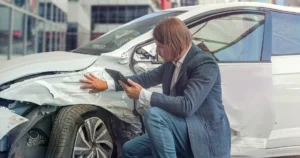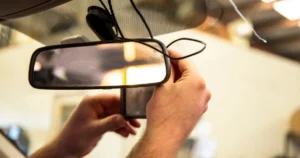 If you are pursuing compensation after a car accident, you must prove another party’s negligence resulted in your damages. However, there are different types of negligence. One form of negligence that may apply in a car accident case is negligence per se.
If you are pursuing compensation after a car accident, you must prove another party’s negligence resulted in your damages. However, there are different types of negligence. One form of negligence that may apply in a car accident case is negligence per se.
Below, we discuss what the legal requirements and limitations are for proving negligence per se.
Call our South Bend-area auto collision lawyers today to learn more about your legal options if you are injured due to someone one else’s negligent actions. We offer a free and confidential legal consultation. There are also no upfront fees if we validate your claim.
What is Negligence Per Se?
Negligence per se is a legal term often used in personal injury cases, such as after a car accident. It is a specific type of negligence that applies when someone has breached his or her duty of care to another party by breaking a law.
When someone is guilty of breaking a law, he or she is automatically considered to have breached the duty of care. Therefore, he or she acted negligently.
However, there are some additional elements that may need to be proven in a negligence per se case. These elements include:
- A law was broken
- Said law was established to protect a certain class
- Damages resulted which were meant to be prevented by the law
Some common examples of negligence per se cases include drunk driving. Indiana has laws against driving under the influence of alcohol to prevent car accidents that result in injuries or fatalities. Therefore, a driver who gets behind the wheel while drunk and causes a crash that injures another person may be guilty of negligence per se.
How is Negligence Per Se Different From Ordinary Negligence?
For a person to be guilty of ordinary negligence, he or she must have breached a duty of care owed by failing to take reasonable steps to avoid causing harm to another party. Whereas a person must be guilty of breaking a law to be guilty of negligence per se.
It may be challenging to prove ordinary negligence in some cases, as there are times when someone’s actions are reasonable even if they cause damages to another party. For example, if a driver swerves to avoid an unforeseen emergency and causes a collision. Since someone else in a similar situation may have acted in the same manner, he or she may not be guilty of acting negligently.
How is Negligence Per Se Proven?
Unlike ordinary negligence, the injured victim does not need to prove the at-fault party breached his or her duty of care. However, you must be able to establish that the at-fault party broke a law meant to protect you and others like you from suffering damages.
Since laws are clearly established, it might be easy to prove the first element of negligence per se – that a traffic law was violated. Unless, of course, the at-fault party denies he or she broke a law. If that is the case, then the burden of proof is on you to prove otherwise. If a ticket was not issued at the crash scene, you may be able to use other evidence like a police report, video footage from the crash or witness testimony to support a case of negligence per se.
Must I Still Prove Causation in a Negligence Per Se Case?
If the at-fault party admits breaking a law but denies his or her actions directly resulted in the accident or your damages, you must still prove causation.
For example, a hit-and-run driver who is caught and admits to fleeing the scene of a crash might not be liable for damages if your leg was already broken. However, if that broken leg was in the process of healing and the crash broke it again, or in another location, then the hit-and-run driver might be liable.
Regardless of the type of negligence case, causation must always be proven.
What Are the Limits to Negligence Per Se?
Negligence per se applies when:
- A law specifically written to prevent specific damages to a specific class of people is broken
- Breaking that law causes exactly the damages the law was intended to prevent
For example, traffic laws are written to prevent injuries and death to drivers, motorcyclists, pedestrians and others who share the road.
Negligence per se may not apply in a texting and driving case if there is no law against texting and driving. Note that Indiana is a hands-free state.
Have More Questions? Call Us Today
If someone broke a law and caused a collision that left you injured, you should be able to recover compensation for your damages.
Our knowledgeable attorneys can investigate your claim to determine what law was broken and whether negligence per se applies. After that, our attorneys can also help build a strong case to prove your claim.
We offer a free consultation to discuss the facts of your claim and see how we may be able to help.
Call (574) 444-0741 today to schedule a free consultation.












